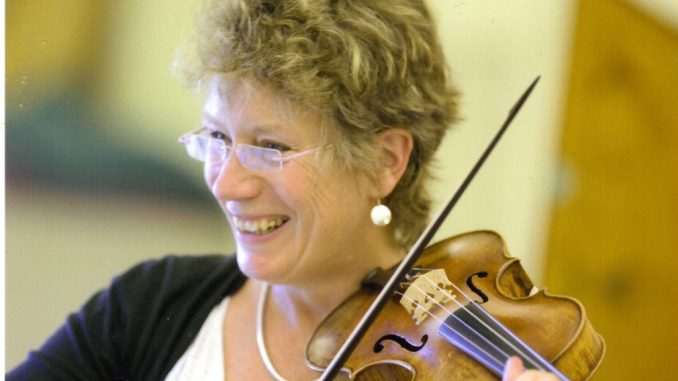
In the world of baroque and classical music, few names resonate with the same reverence as Elizabeth Wallfisch. As we step into 2025, this effervescent violinist continues to make waves as one of the leading figures in the performance and direction of period music. Wallfisch is celebrated not only for her exceptional talent as a violinist but also for her groundbreaking contributions to historically informed performances. Her dedication to period instruments and authentic sound has redefined how audiences experience classical music.
Known for her charismatic approach to music-making, Wallfisch’s career has spanned decades, and her influence on the music world remains unparalleled. She is particularly renowned for her work with baroque violin, and her ability to navigate the intricacies of period style with grace and precision has earned her the admiration of peers and audiences alike. But beyond her virtuosity, Wallfisch is also a passionate educator, mentor, and artistic director who has shaped the direction of some of the finest period ensembles in the world today.
A key part of her legacy is her founding of the Locatelli Trio, a chamber group that brings together virtuoso musicians committed to presenting historical works with an authentic flair. The trio has garnered international acclaim for its performances of lesser-known baroque works alongside the standard repertoire. With Wallfisch at the helm, the Locatelli Trio has been celebrated for its interpretation of music by Italian baroque composers, whose works are often underrepresented on the global concert stage.
Another feather in her cap is the Wallfisch Band, an ensemble she founded with the goal of presenting period music in the most authentic way possible. Comprised of musicians who specialize in historically informed performance practices, the Wallfisch Band has become a leading force in the revival of baroque and classical repertoire. Wallfisch’s leadership has been instrumental in ensuring that the ensemble brings a level of artistry and scholarship that sets it apart from many of its contemporaries. Their performances have earned rave reviews for their energy, depth of interpretation, and commitment to historical authenticity.
As a director, Wallfisch’s work extends far beyond just playing the violin. She is known for her meticulous attention to detail and her ability to draw out the best from every musician in her ensemble. Her leadership style blends a deep respect for the past with a forward-thinking approach to creating fresh and vibrant performances. It is this combination of passion, scholarship, and creativity that has made Wallfisch an irreplaceable figure in the world of early music.
In 2025, Wallfisch is not resting on her laurels. She remains as active as ever, both in performance and in nurturing new generations of musicians. This year, her schedule includes several highly anticipated performances with her ensembles, as well as collaborations with major orchestras dedicated to period performance. Audiences can look forward to hearing her distinctive interpretations of works by composers such as Bach, Vivaldi, and Handel, which she continues to bring to life with her unparalleled musicianship.
Wallfisch’s commitment to preserving the authenticity of historical music while presenting it in a way that resonates with contemporary audiences ensures that her contributions to the classical music world will remain vital for years to come. With her profound musical insight, the effervescent Elizabeth Wallfisch is a living testament to the power of period music and its continuing relevance in the 21st century. As she continues to inspire and lead, her legacy in the world of baroque and classical music is firmly cemented, and her influence will undoubtedly shape the future of early music for generations to come.
Be the first to comment